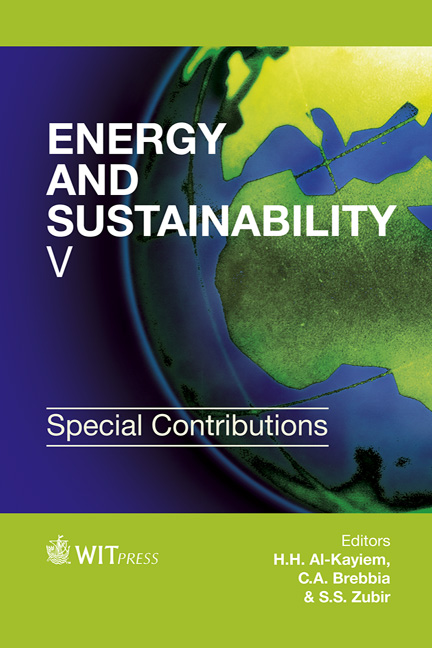Sustainability Of Bioenergy In Malaysia With Reference To Palm Oil Biomass: Adopting Principles Governing Bioenergy Policy In The UK
Price
Free (open access)
Transaction
Volume
206
Pages
11
Page Range
57 - 67
Published
2015
Size
214 kb
Paper DOI
10.2495/ESS140051
Copyright
WIT Press
Author(s)
D. R. Abu Bakar, G. Anandarajah
Abstract
In the UK, bioenergy is widely recognised in playing an important role if the country is expected to meet its low carbon objectives by 2050 and the EU Renewable Energy Directive objectives by 2020. The main driver for bioenergy development in the UK is thus to achieve this goal. The principles governing UK bioenergy policy are outlined in the UK Bioenergy Strategy (UKBS), whereby a sustainability criteria is recognised as key to distinguishing between the consistency of bioenergy production and its use with these principles. In comparison, Malaysia’s bioenergy development has evolved from a different landscape, involving different drivers from social and economic development to protecting the environment. Recognising the palm oil sector as the main key producer of bioenergy, the aim of this paper is to (1) examine what could be the challenges and what could be achieved if Malaysia were to apply a principle-based approach in setting a strategic direction to guide bioenergy policy, similar to the UKBS in its current bioenergy policy; and (2) to assess, in general, the sustainability of Malaysian bioenergy with reference to the use of palm oil biomass by adopting the UK bioenergy sustainability criteria. This paper draws conclusions on the limitation capabilities of the palm oil sector with regard to the implementation of such policy approaches and the sustainability of palm oil bioenergy when using the UK sustainability criteria standard.
Keywords
Malaysia bioenergy, sustainability criteria, palm oil biomass





